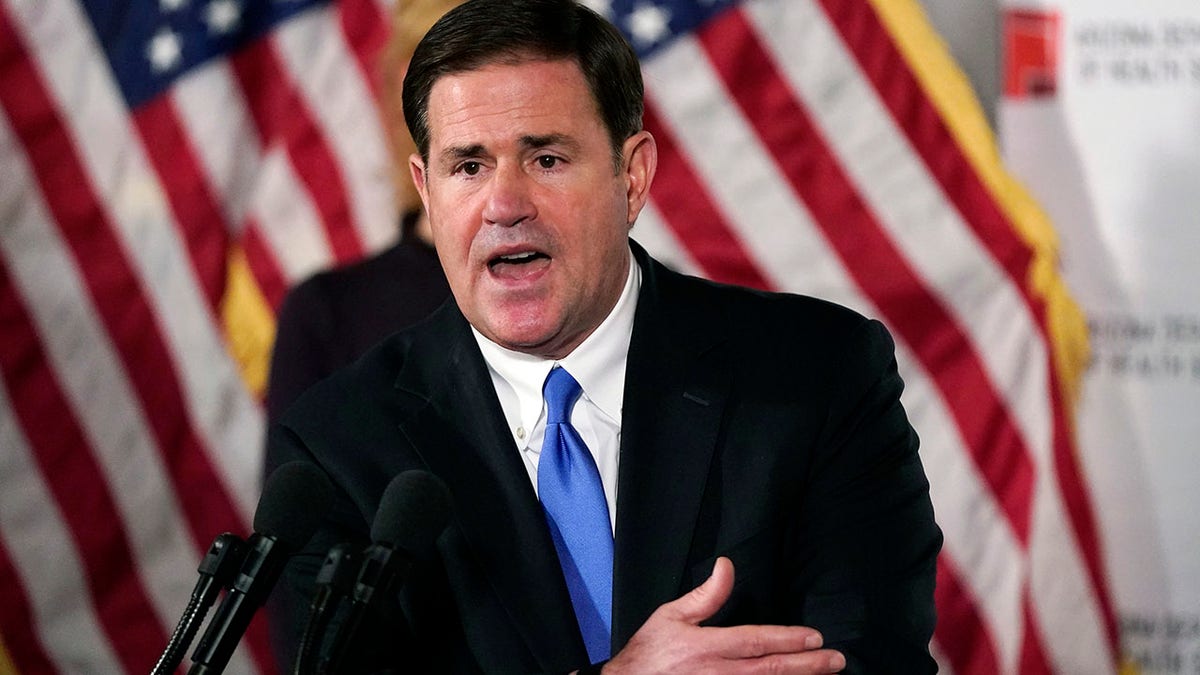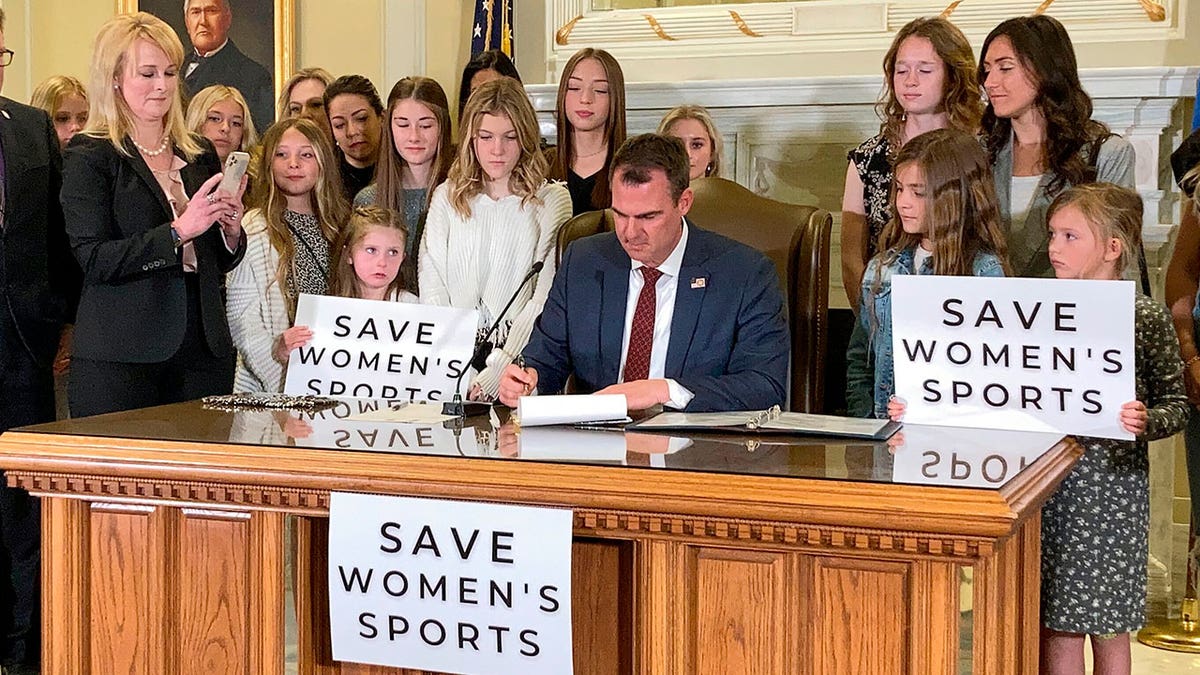Olympian Emma Weyant finishes second to transgender swimmer Lia Thomas in NCAA championship
The ‘Outnumbered’ panel discusses Lia Thomas’ victory and the future of women’s sports.
Arizona Republican Gov. Doug Ducey signed into law Wednesday a pair of bills, one that prevents transgender girls from participating in female school sports and another that prohibits gender reassignment surgery for minors in the state.

Arizona Gov. Doug Ducey answers a question during a news conference in Phoenix on March 19, 2021. (AP Photo/Ross D. Franklin)
The two "common-sense" measures — Senate Bill 1138 and Senate Bill 1165 — were signed in an attempt to ensure "that the girls and young women who have dedicated themselves to their sport do not miss out on hard-earned opportunities," according to the governor.
SB 1138 states that a "physician or other health care professional may not provide gender transition procedures to any individual under eighteen years of age." SB 1165 prevents transgender girls from playing on girls teams. It also requires "each interscholastic or intramural athletic team or sport that is sponsored by a public school or a private school whose students compete against a public school" to designate a gendered name to the team based on the biological sex of the participants. For example, "boys," "girls," "male," "female" or "coed" are among the accepted designations the teams can give themselves.
"Today I signed S.B. 1138 and S.B. 1165, legislation to protect participation and fairness for female athletes and to ensure that individuals undergoing irreversible gender reassignment surgery are of adult age," Ducey wrote in a letter to Arizona Secretary of State Katie Hobbs.
Ducey said the legislation is "common sense and narrowly targeted to address" the issues in the state while ensuring that transgender residents in the state continue to receive the same "dignity, respect and kindness as every individual in our society."
Writing about gender reassignment in the letter, Ducey said, "The irreversible nature of these procedures underscores why such a decision should be made as an adult, not as a child, and further supports the importance of this legislation."

Ducey during his 2020 State of the State address as Senate President Karen Fann, R-Prescott, right, and House Speaker Rusty Bowers, R-Mesa, left, listen in on the opening day of the legislative session at the Capitol in Phoenix. (AP Photo/Ross D. Franklin, File)
While the legislation does not allow transgender females to participate in girls sports, it does not prevent them from taking part in other school sports that are not designated "female." The law also does not apply to sports leagues or clubs outside of school.
Angela Hughey, president and founder of ONE Community, an organization that places emphasis on "diversity, inclusion, equity and equality" slammed Ducey for signing the measures.
"My biggest concern is that the governor has decided to put the most vulnerable members of Arizona’s LGBTQ community at greater risk," Hughey told KTAR News. "It is clear that he does not understand that as governor his duty as the CEO of the state of Arizona is to protect all Arizonans."
CLICK HERE TO GET THE FOX NEWS APP
"We know that LGBTQ youth, and in particular trans youth, have a higher rate of suicidal ideation, and so we know that these are our most vulnerable kids, and we really need to do everything we can to make sure they have the opportunity to thrive as the young people that they are," Hughey added.
Since 2017, about 16 trans athletes have asked for waivers to play on teams that align with their gender identities out of about 170,000 high school athletes in the state, and not all were granted, according to the Arizona Interscholastic Association.

Oklahoma Gov. Kevin Stitt signs a bill in Oklahoma City on Wednesday that prevents transgender girls and women from competing on female sports teams. (AP Photo/Sean Murphy)
Oklahoma Gov. Kevin Stitt signed a similar bill into law Wednesday, also referring to the measure as "just common sense."
"When it comes to sports and athletics, girls should compete against girls," Stitt said. "Boys should compete against boys. And let's be very clear: That's all this bill says."
The Associated Press contributed to this report.















































